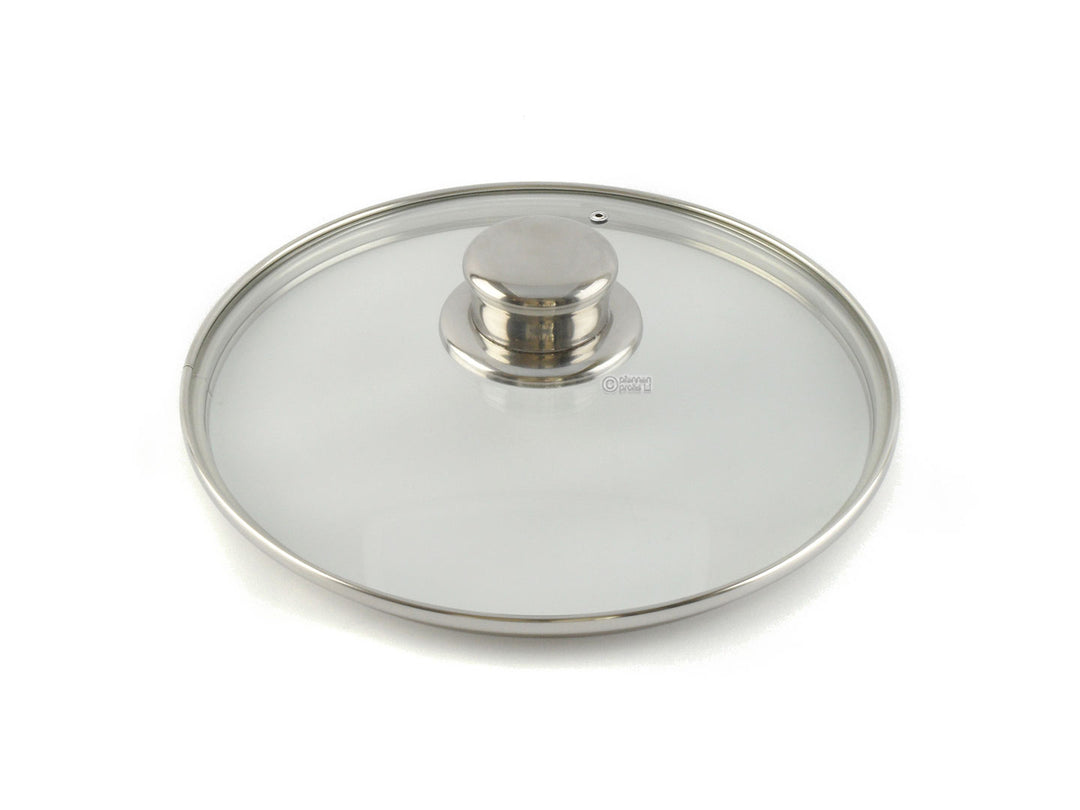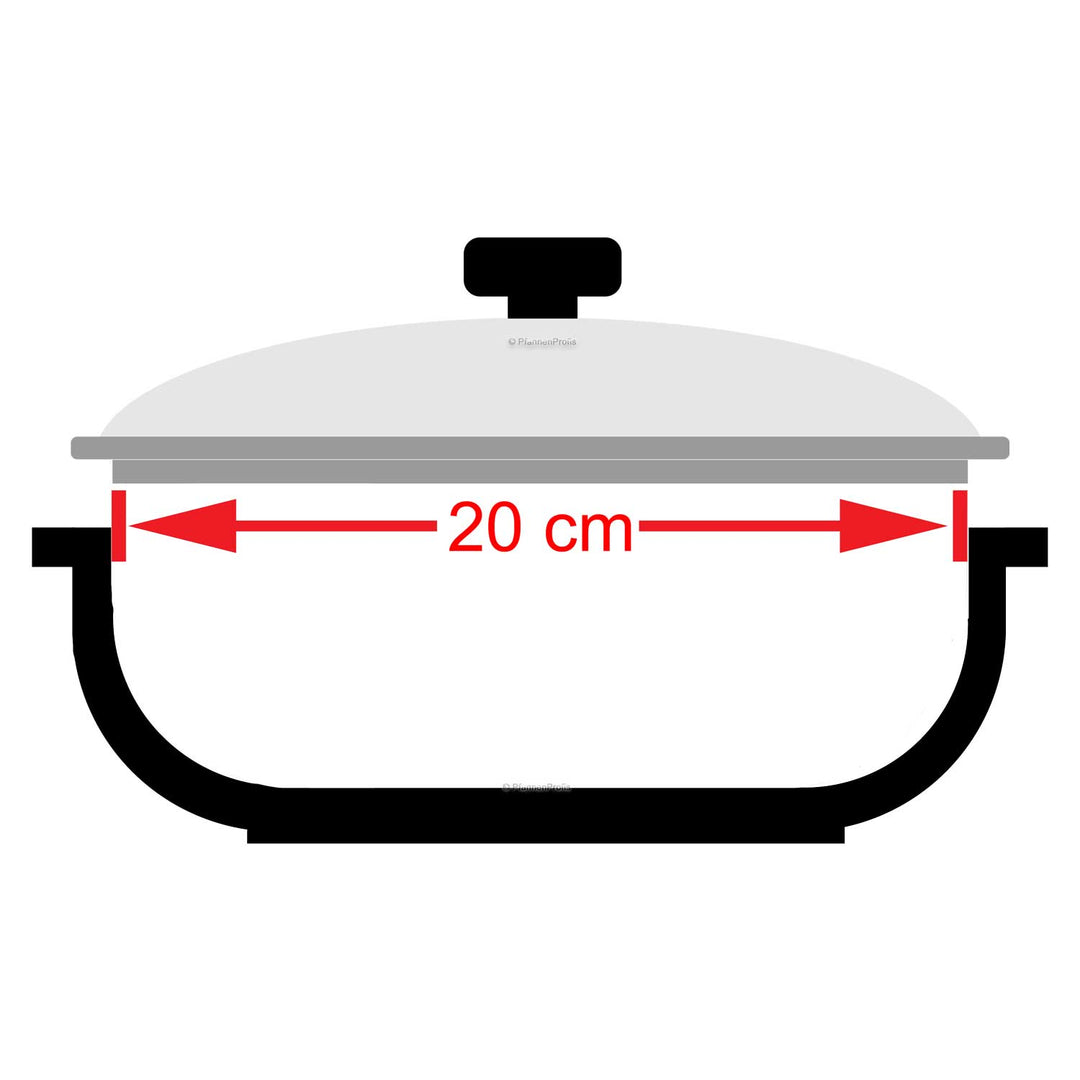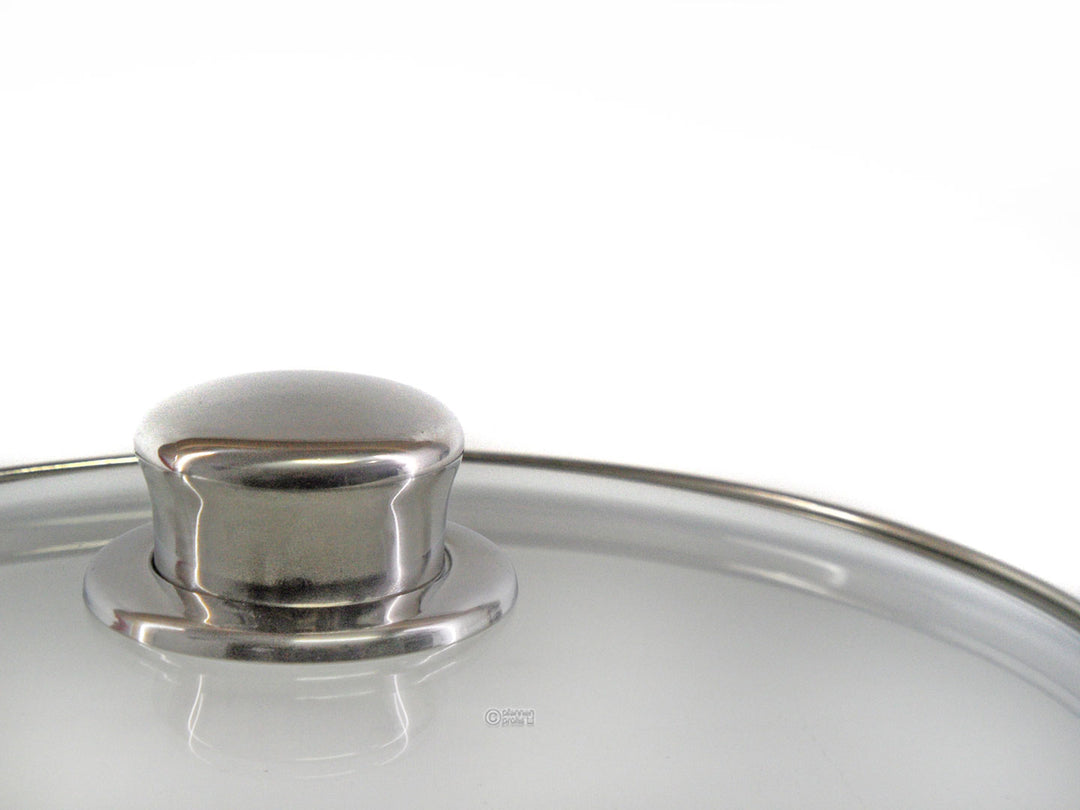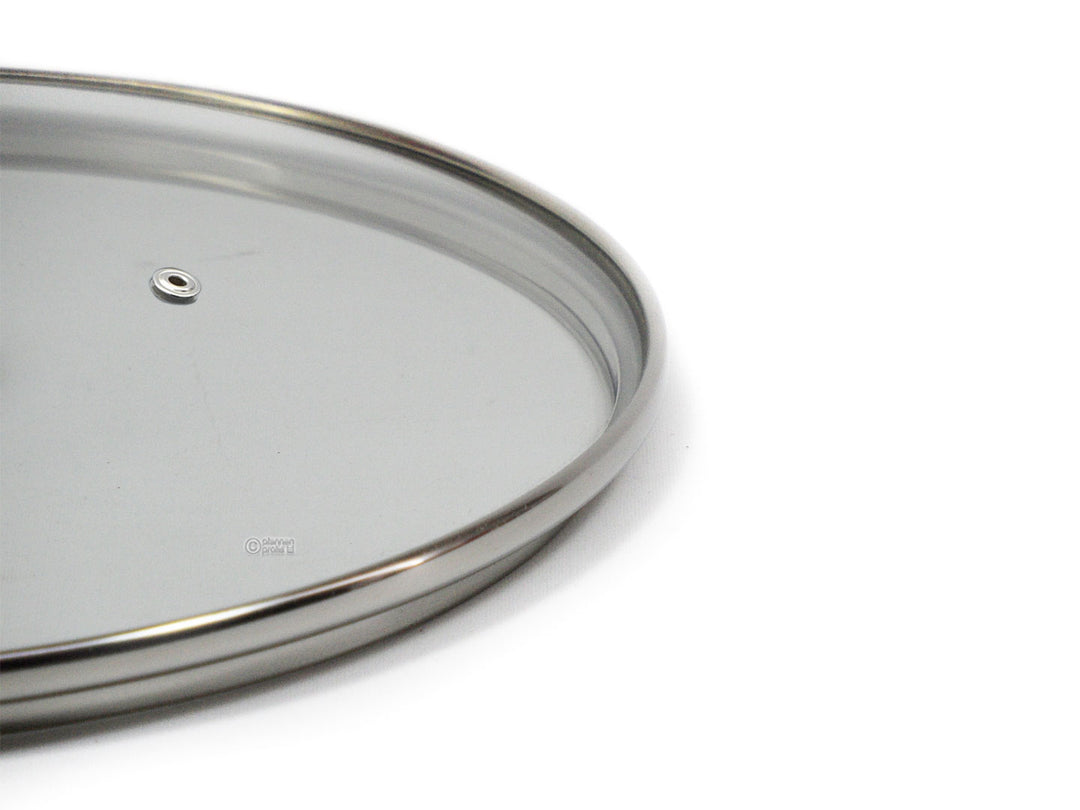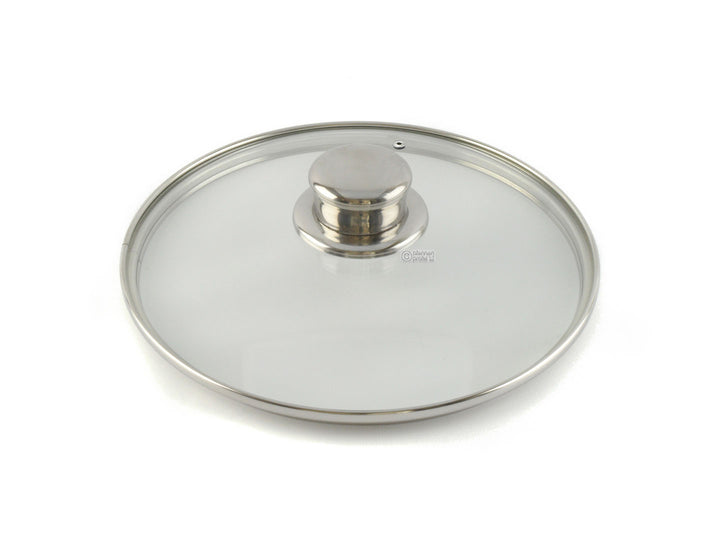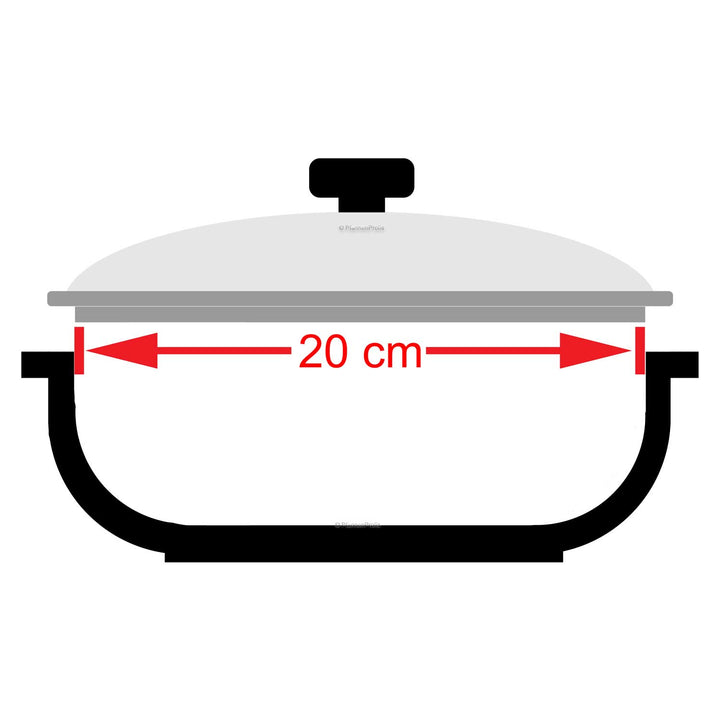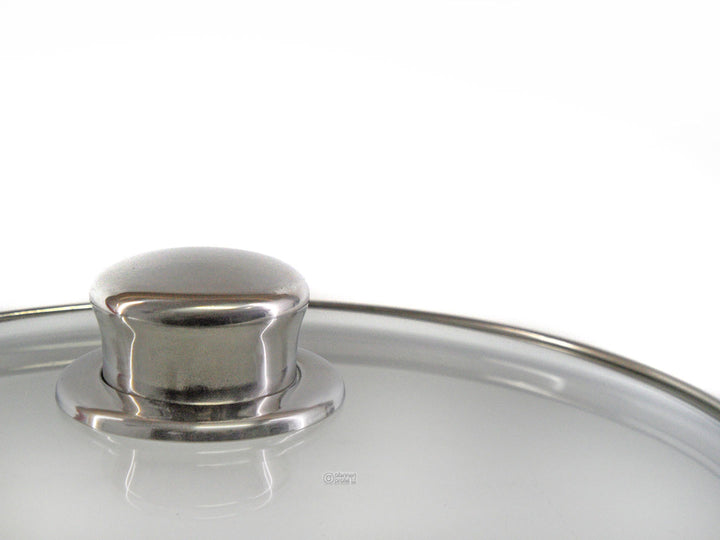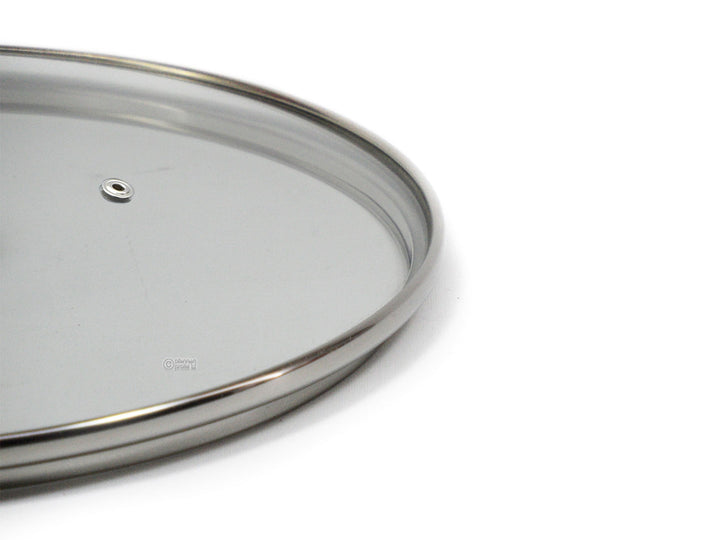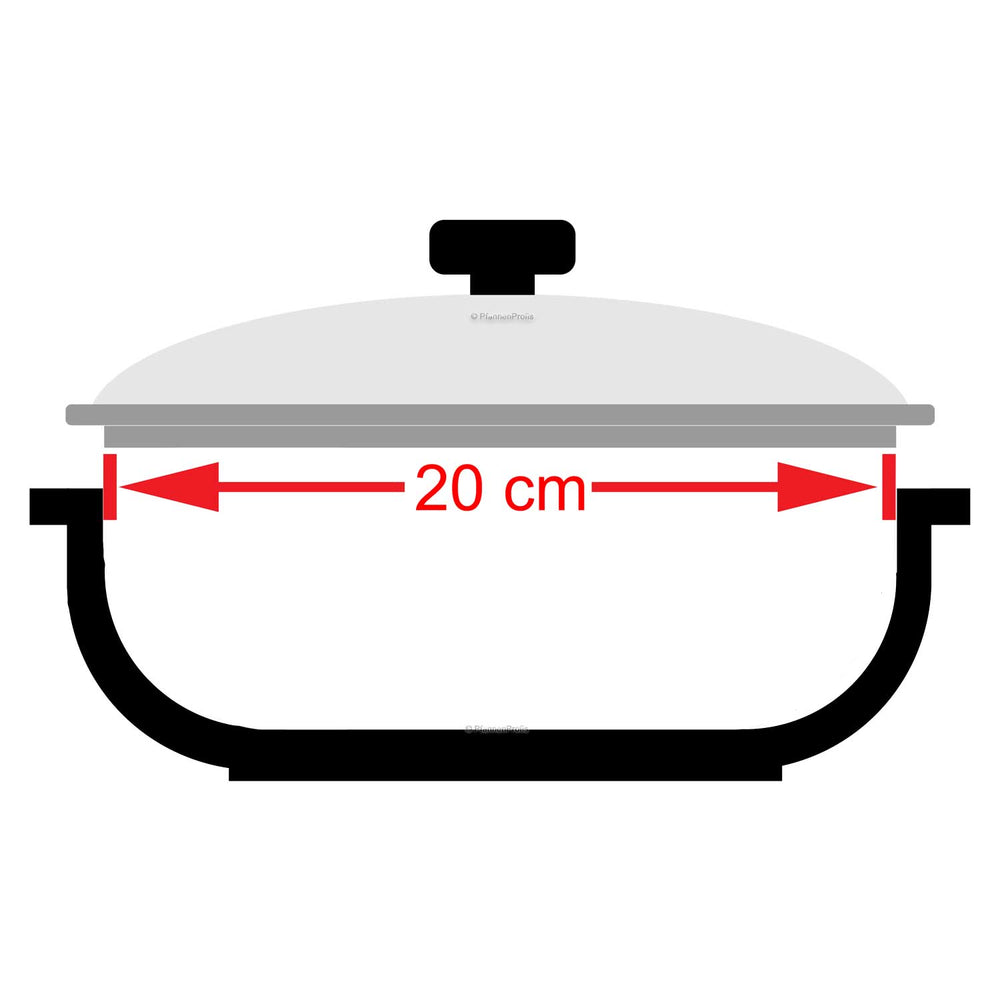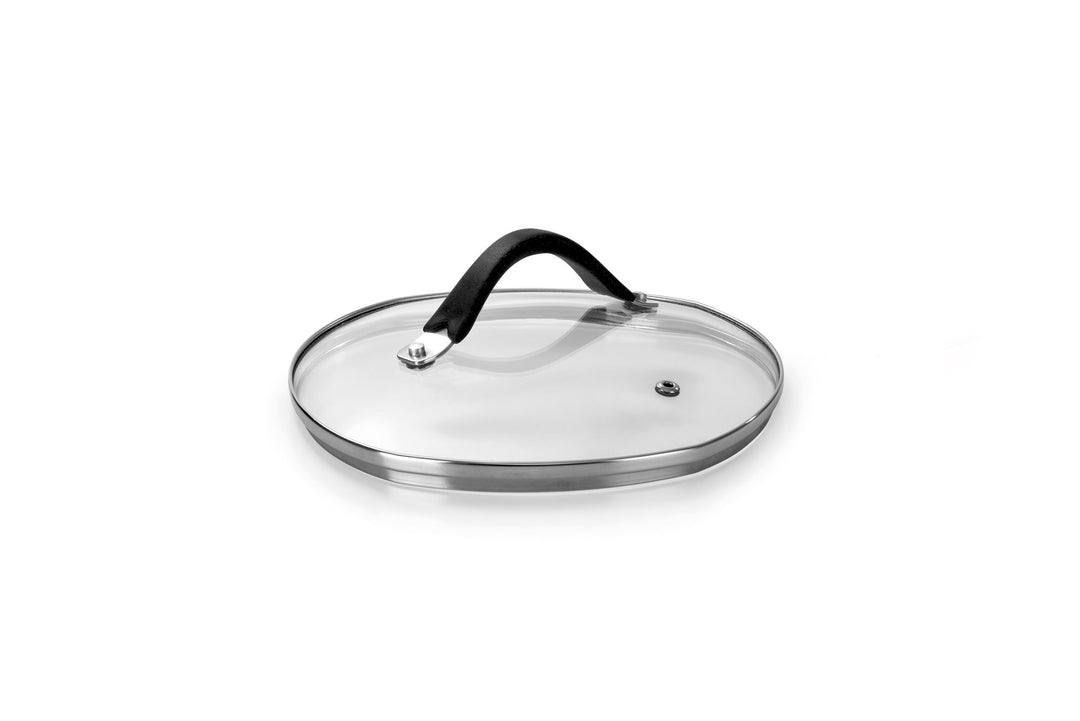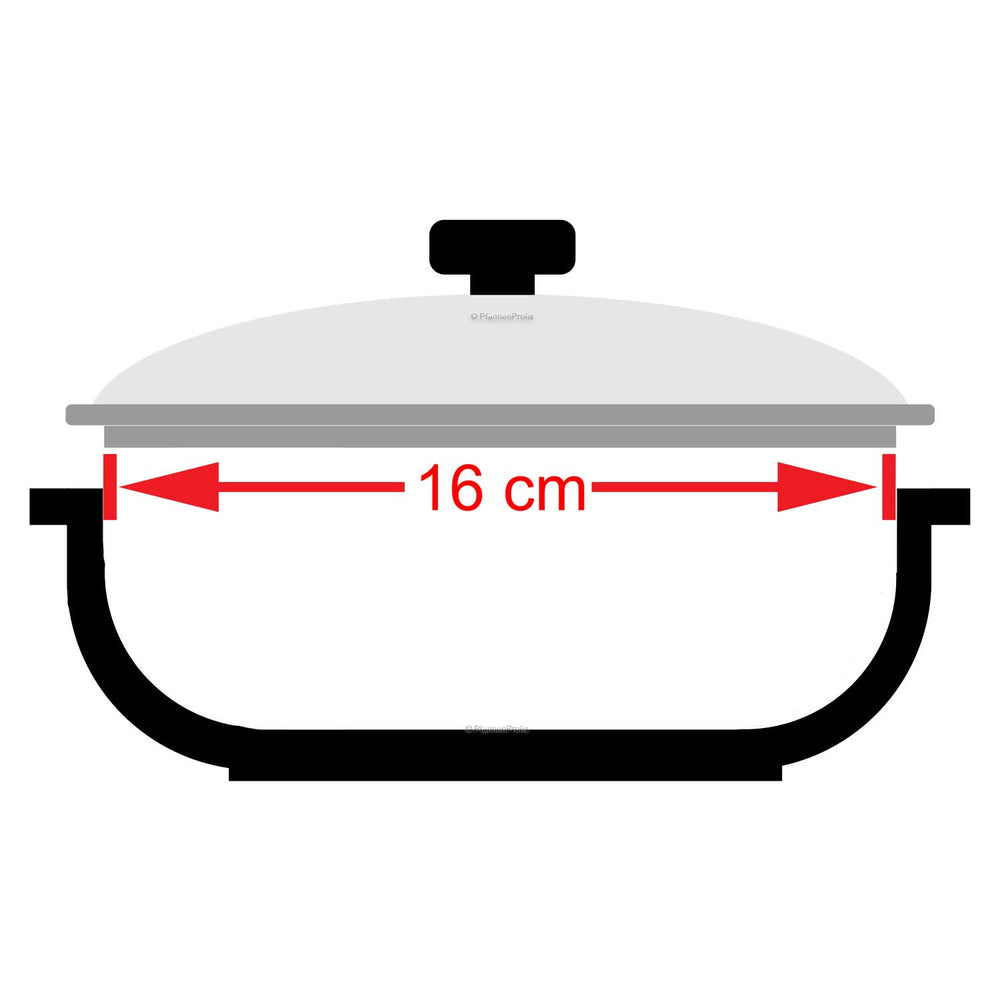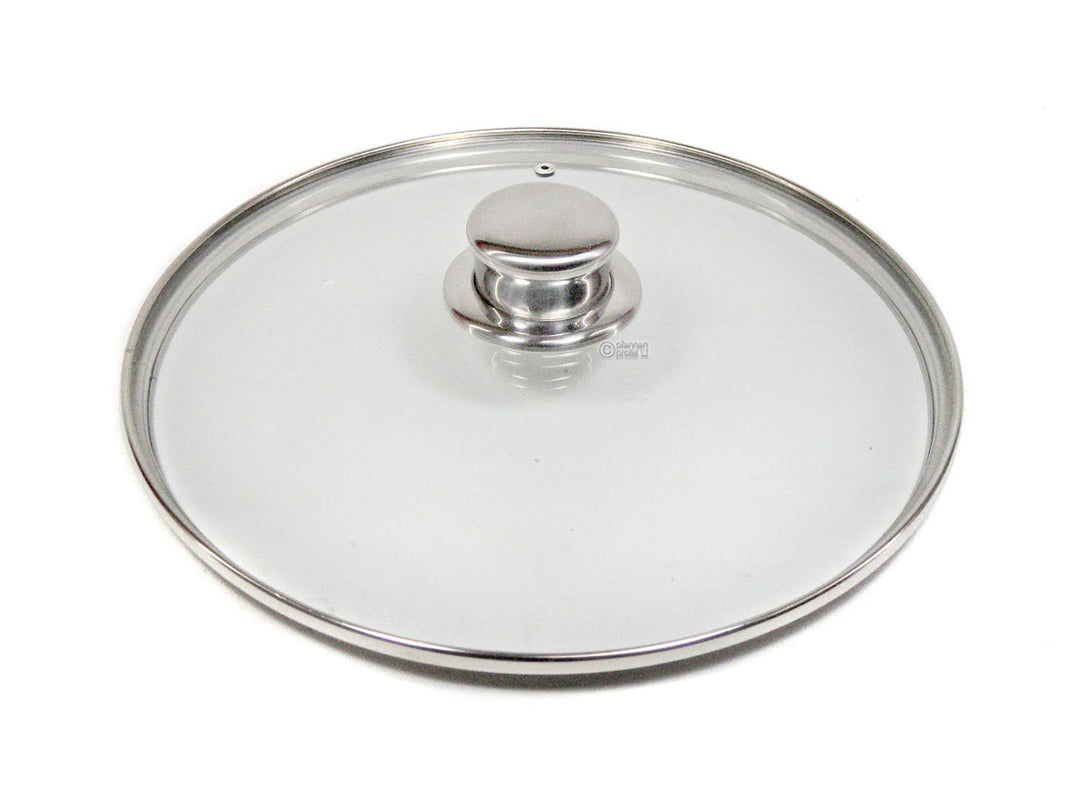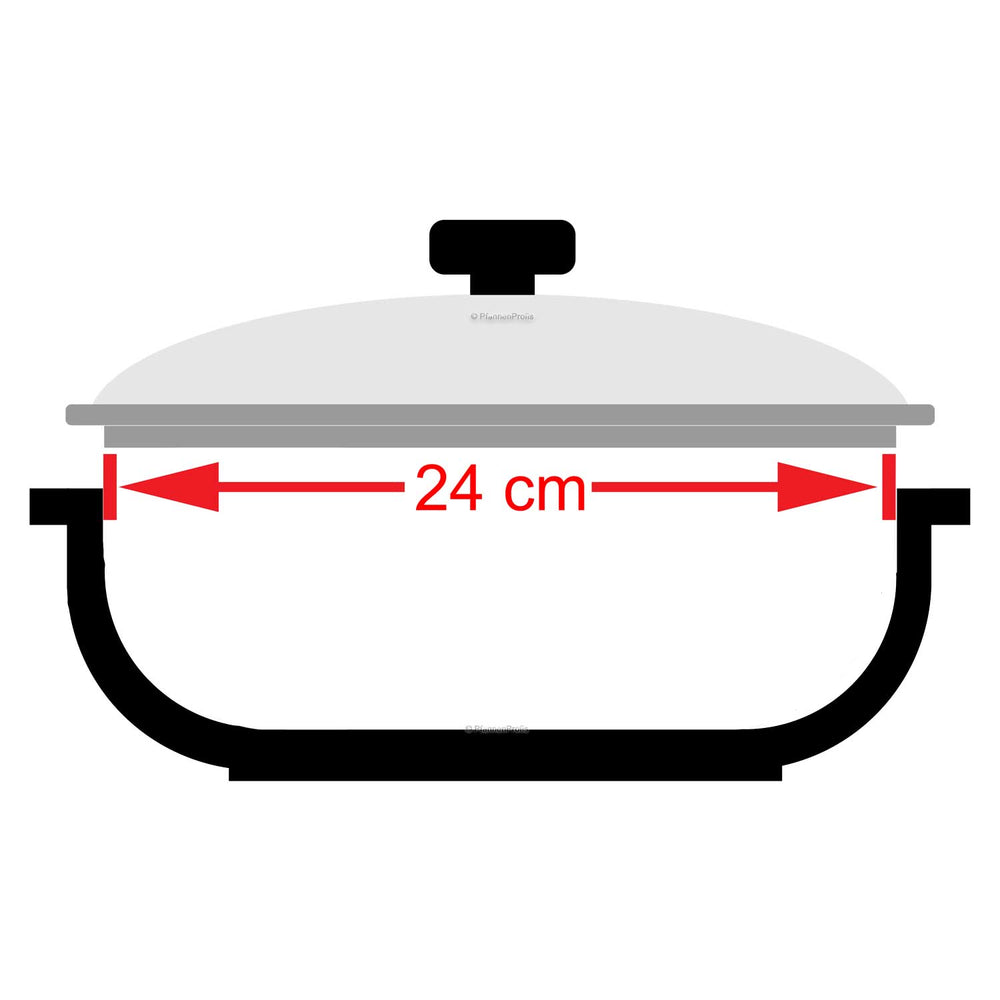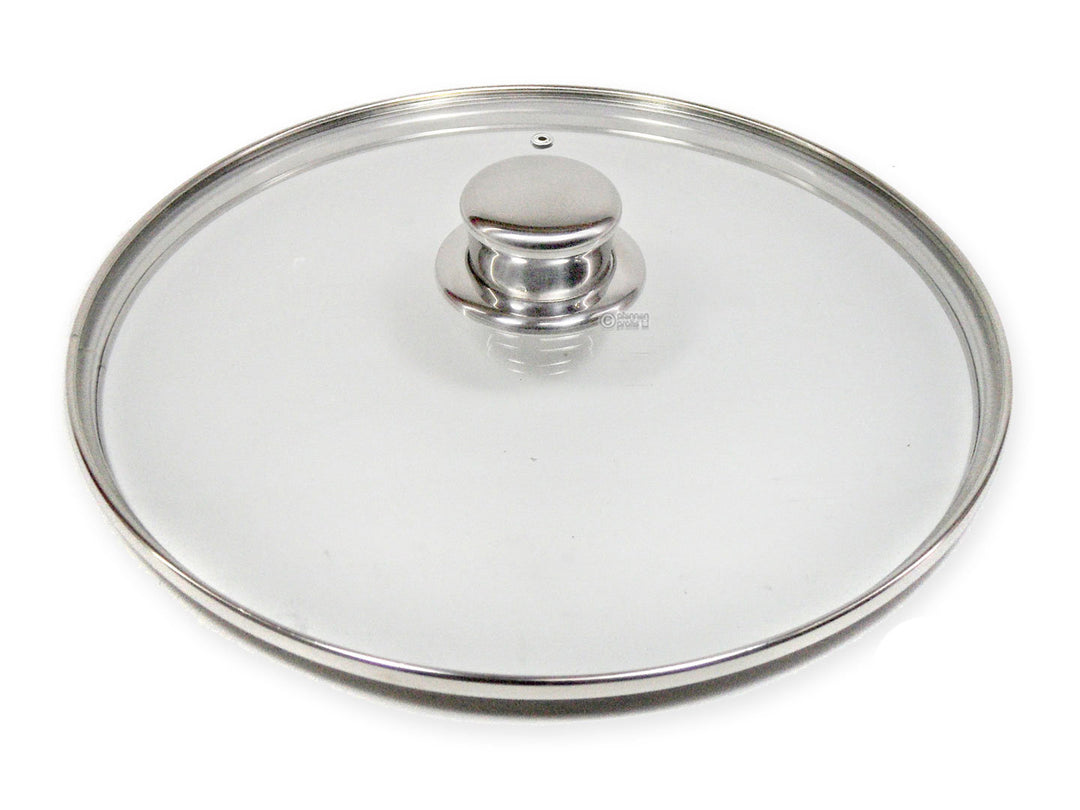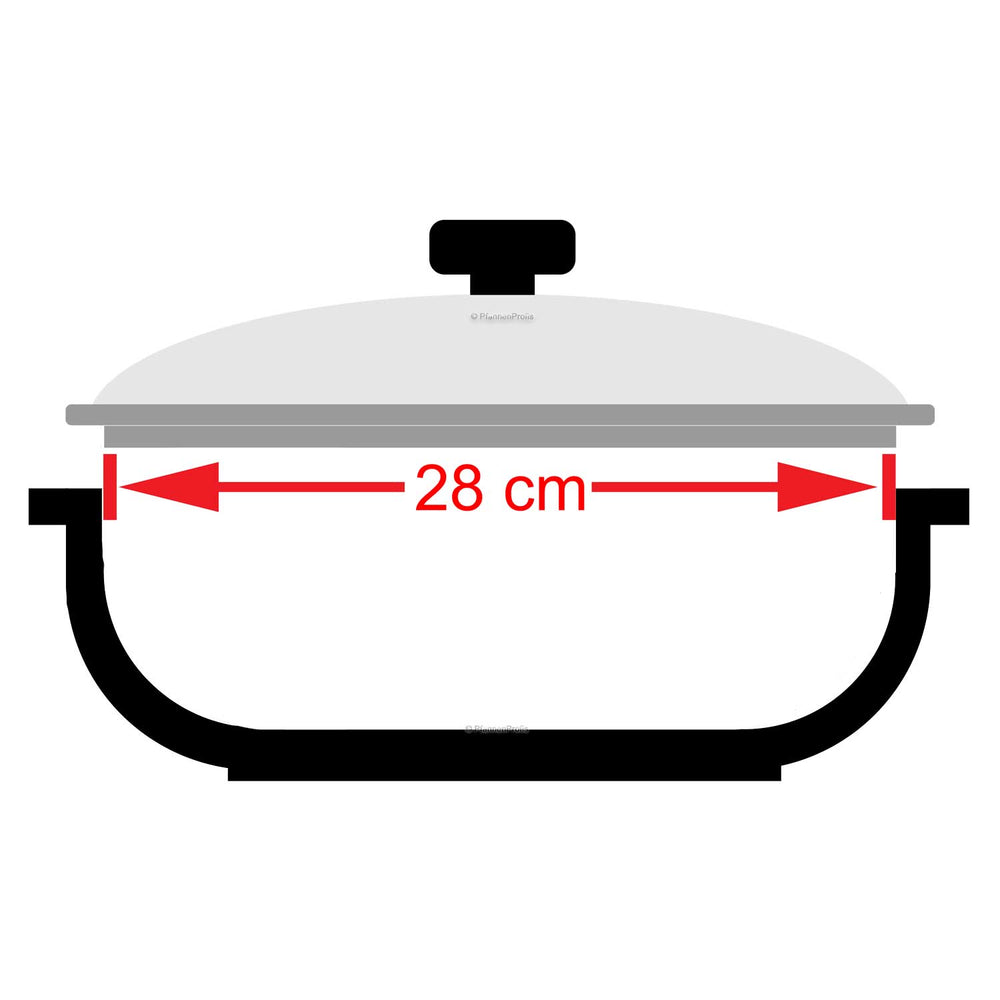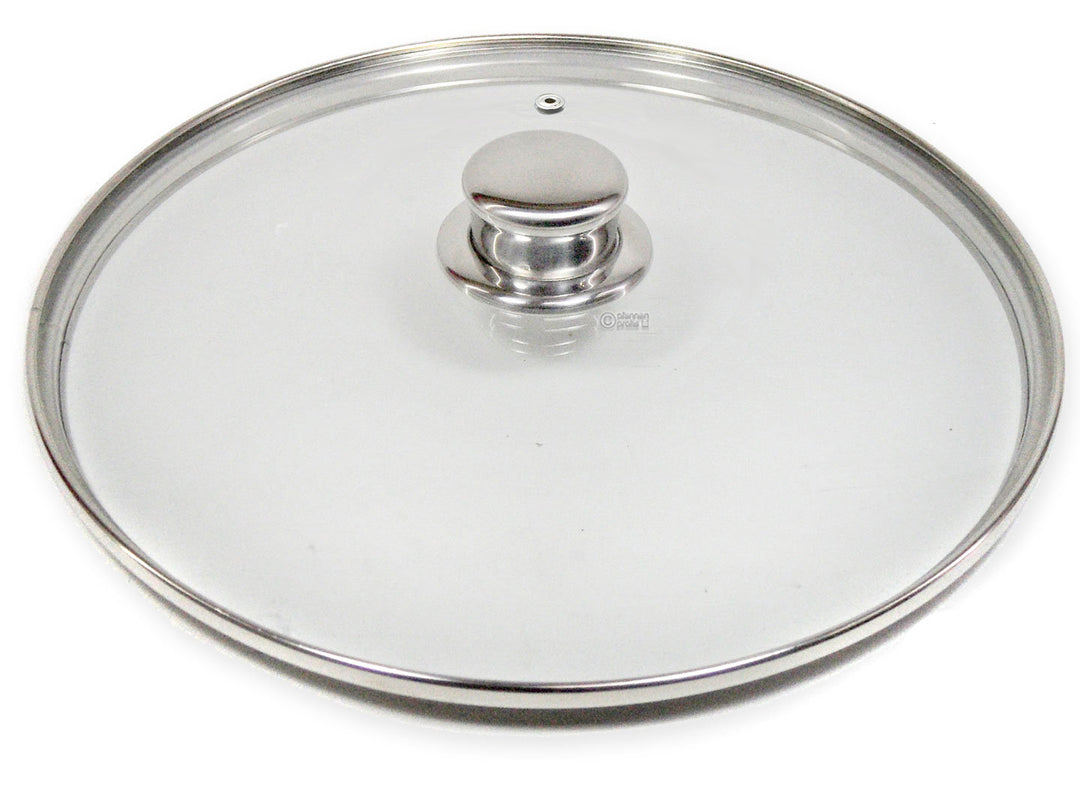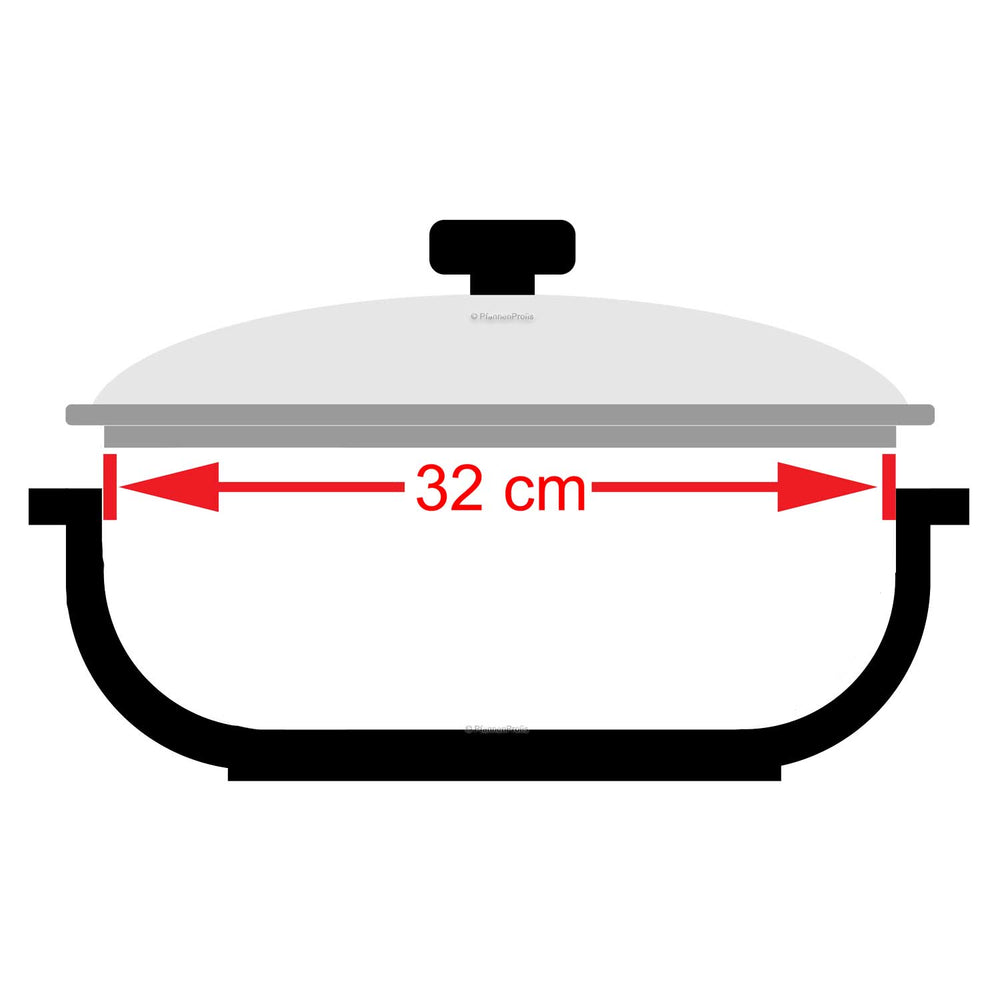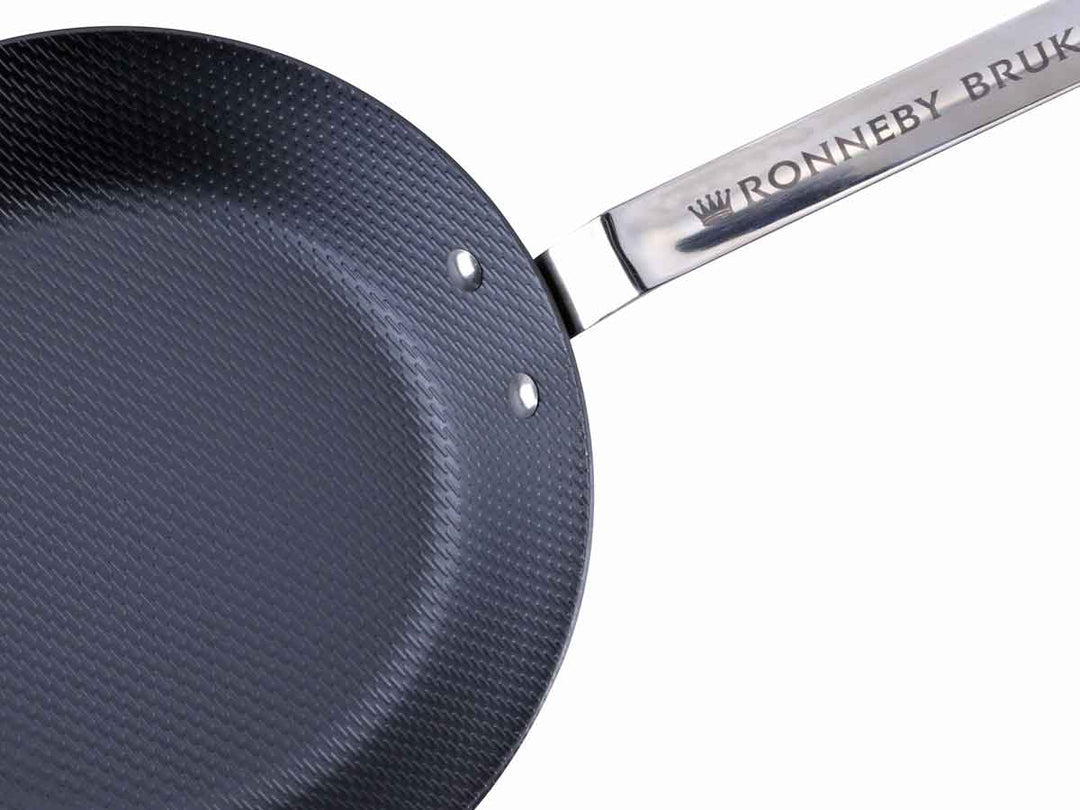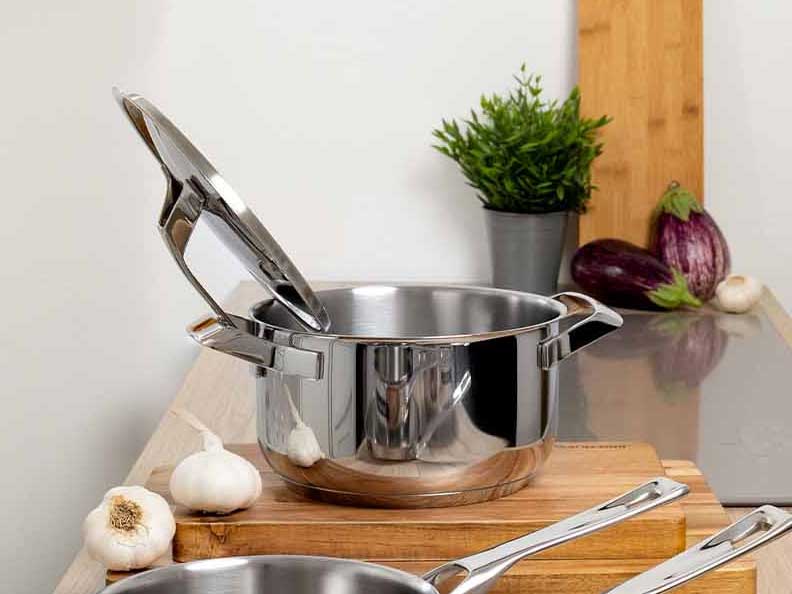Heat-resistant glass lid (max. 200° C)
The well-priced universal glass lids from the CRISTAL range by BEKA are an ideal addition for most commercially available pots and pans of this size.
CRISTAL glass lids are ovenproof up to 200° C. Knob and rim are made from stainless steel.
- A quality product by BEKA.
- Universal lid 20 cm made from heat-resistant glass with stainless steel rim.
- Handy stainless steel knob.
- Integrated vent hole.
- Fits most commercially available pots and pans with a diameter of 20 cm (upper inner diameter).
- Easy-care and dishwasher-safe.
- Ovenproof up to 200°C.
Understanding the information on the size / diameter, height and capacity of cookware:
1) The most important information: diameter = upper inner diameter

The diameter is the most important indication of the size of pots and pans. The measurement is taken at the top inside , i.e. on the inside of the pan/pot rim; hence the designation upper inner diameter, which you will find in our item descriptions. A 28 cm pan has a diameter of 28 cm from one inner edge to the other inner edge. This measurement method is an international standard and authoritative, unless expressly stated otherwise in the item description.

For square pans (e.g. many grill pans) and roasters, the size is given as the product of two lengths. Here you measure again at the top inside, at the longest point, which is usually in the middle. For example, many grill pans have a size of 28 x 28 cm.
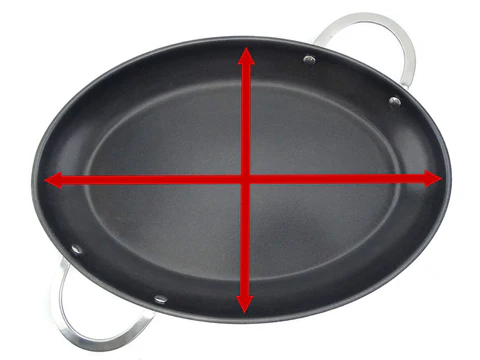
Fish pans and roasters often have an oval shape. As shown above with the square pans, the longest internal dimension is given here. Such a 38 cm fish pan has an inner length of 38 cm on its longest side. At right angles to this is the short side of eg 24 cm. As a result, the pan would be declared as 38 x 24 cm.
2) Bottom diameter = contact surface
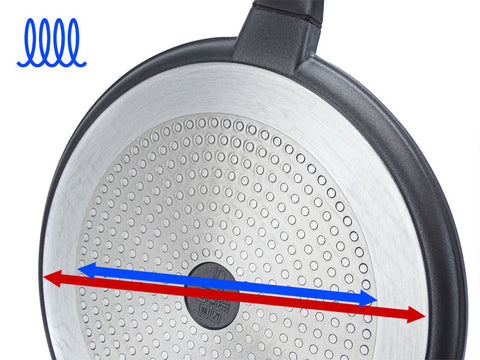
When we talk about base diameter, we mean the diameter of the contact surface, i.e. the surface with which the pan, pot or roaster stands on the stove. Not meant is the frying surface! The information about the base diameter can be helpful when it comes to choosing a suitable cooking surface for the cookware. The size of the cooker and the diameter of the base of the cookware should match to a certain extent in order to avoid damage to the cookware and to ensure that the cookware functions as well as possible.
ATTENTION, induction-suitable aluminum cookware:
Please note that cookware made of aluminum / cast aluminum for induction cooking usually has a stainless steel disc on the base, the diameter of which is often smaller than that of the base (marked in blue in the picture). Where this applies, you will find the corresponding information in our item descriptions.
3) Height of pots and pans

Unless expressly stated otherwise, the indication of the height of a cookware describes the outer edge height, from the top edge of the cookware perpendicularly to the contact surface, without taking lids, handles etc. into account.
The inner height (i.e. from the frying surface up to the edge) can be determined approximately by subtracting the base thickness from the height.
4) Capacity of a cookware

When it comes to capacity, there are often misunderstandings: the capacity of a cookware indicates how much the container can hold at most. That always means filling up to the brim! This is international standard. The filling quantity that can be used when cooking is always less than the capacity.
Please note that in the case of pressure cookers, for safety reasons, the filling quantity permitted in pressure cooking is significantly lower than the capacity of the pot.
 DE: 4.90 €
DE: 4.90 €
 EU: from 14.90 €
EU: from 14.90 €
 UK: from £18.40, delivered duty paid
UK: from £18.40, delivered duty paid
 CH: from 19.90 € (duties & charges may apply with / after delivery)
CH: from 19.90 € (duties & charges may apply with / after delivery)
 USA & CND: from 35.70 € (duties & fees may apply with / after delivery)
USA & CND: from 35.70 € (duties & fees may apply with / after delivery)
More details about shipping costs here.



